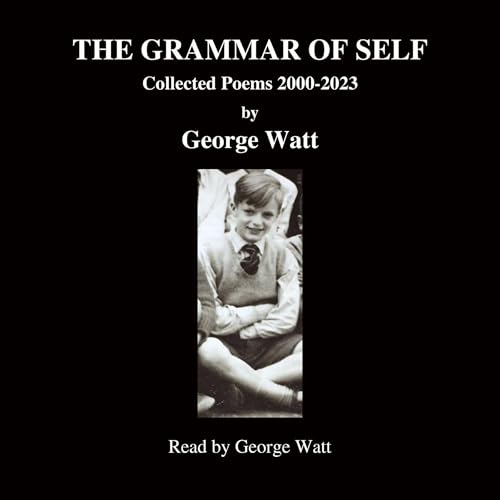
The Grammar of Self
Collected Poems 2000-2023
Failed to add items
Add to basket failed.
Add to Wish List failed.
Remove from Wish List failed.
Follow podcast failed
Unfollow podcast failed
Buy Now for $16.99
-
Narrated by:
-
George Watt
-
By:
-
George Watt
About this listen
In THE GRAMMAR OF SELF, George Watt presents a lifetime of memories, which seemingly move at random from decade to decade, from continent to continent, from cosmos to microcosm. It does have one central goal: to look at poetry as an attempt towards objectification of aspects of personal identity, as a means through which the self may be confronted, challenged and celebrated. But the volume of verse does more than that as it subscribes to a notion from Thomas Szasz about the self: it is “not something that one finds. It is something that one creates.” (T.S. Szasz, The Second Sin (New York: Anchor Press, 1973, p. 49.) This volume accepts that the poetic text, or multiples thereof, is one means through which a self finds articulation. This articulation is open-ended, chaotic, composed of innumerable experiential fragments that come from deed, time, place and person. The self in this volume is composed of psychic jigsaw pieces (single poems) each of which assert their right to placement, but which will never collate into a perfect picture. This volume of poetry is a collection of many of these pieces, which together present an incomplete movement towards Szaszian self-creation.
©2024 Proverse Hong Kong (P)2024 Proverse Hong Kong

